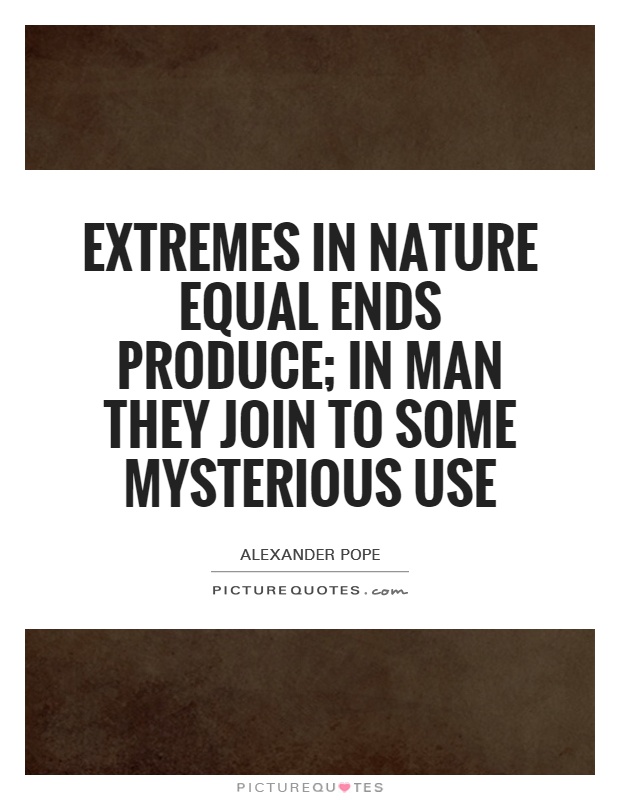Extremes in nature equal ends produce; In man they join to some mysterious use

Extremes in nature equal ends produce; In man they join to some mysterious use
Alexander Pope, a renowned poet of the 18th century, often explored the themes of nature, humanity, and the interconnectedness between the two in his works. In his poem "Essay on Man," Pope delves into the idea that extremes in nature and in man serve a purpose, albeit a mysterious one.The line "Extremes in nature equal ends produce; In man they join to some mysterious use" speaks to the idea that extremes in nature, such as the harshness of winter and the abundance of summer, serve a purpose in maintaining balance and harmony in the natural world. Similarly, extremes in human behavior and emotions, such as love and hate, joy and sorrow, also serve a purpose in shaping our experiences and understanding of the world around us.
Pope suggests that while extremes in nature may seem chaotic and unpredictable, they ultimately work together to create a harmonious and balanced ecosystem. In the same way, extremes in human behavior and emotions may seem contradictory and conflicting, but they ultimately serve a purpose in shaping our character and understanding of the world.
Pope's exploration of the interconnectedness between nature and humanity reflects his belief in the inherent order and purpose of the universe. He suggests that while we may not always understand the reasons behind the extremes we encounter in life, they ultimately serve a greater purpose in shaping our experiences and understanding of the world.
Overall, Pope's line "Extremes in nature equal ends produce; In man they join to some mysterious use" highlights the interconnectedness between nature and humanity and the idea that extremes, whether in nature or in human behavior, serve a purpose in shaping our experiences and understanding of the world. It is a reminder that even in the face of chaos and unpredictability, there is a greater order and purpose at work in the universe.












 Friendship Quotes
Friendship Quotes Love Quotes
Love Quotes Life Quotes
Life Quotes Funny Quotes
Funny Quotes Motivational Quotes
Motivational Quotes Inspirational Quotes
Inspirational Quotes